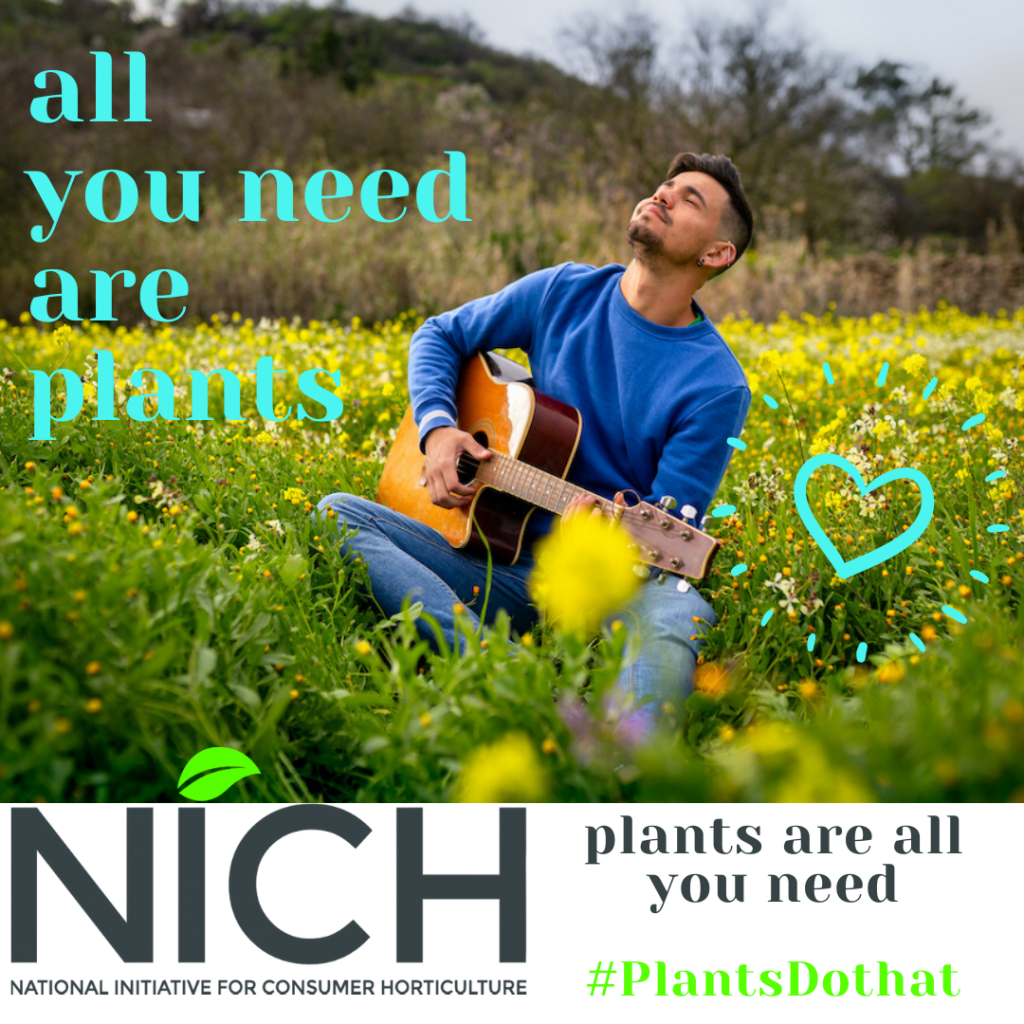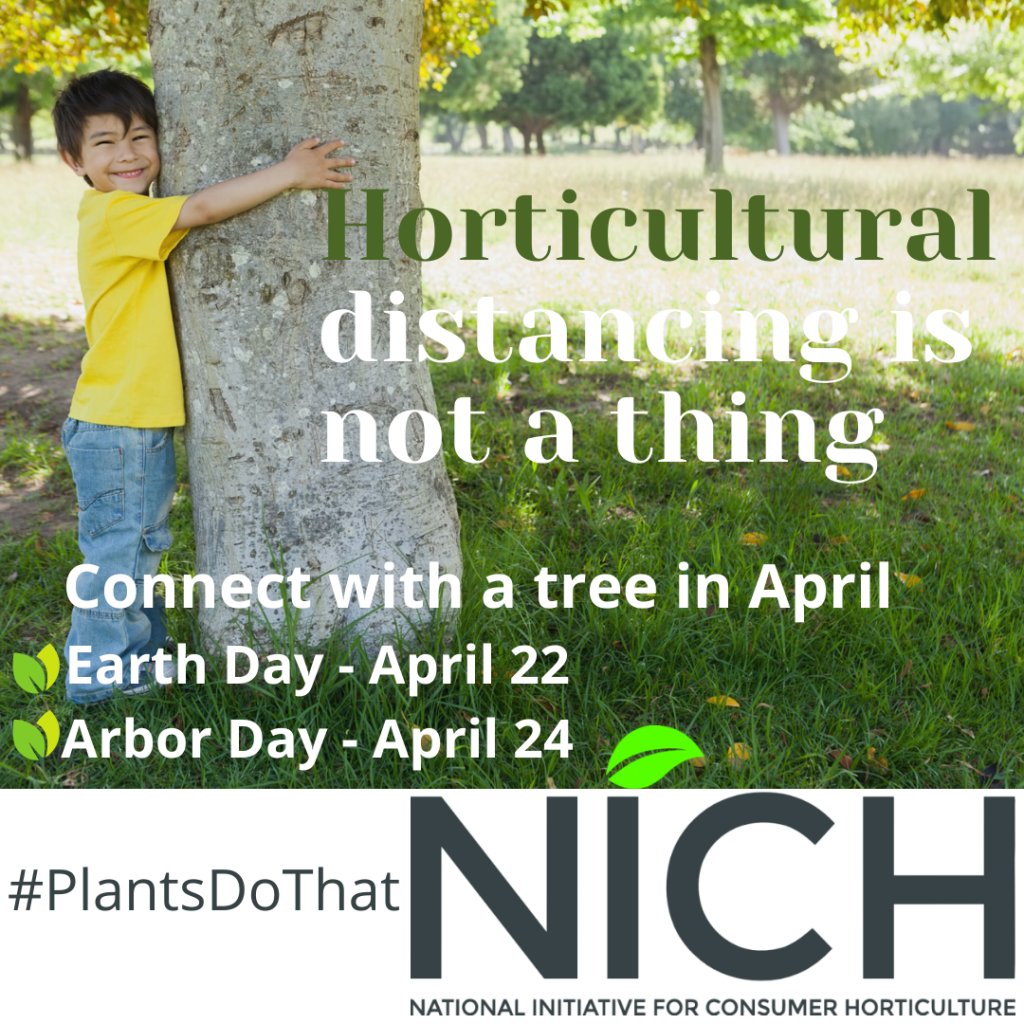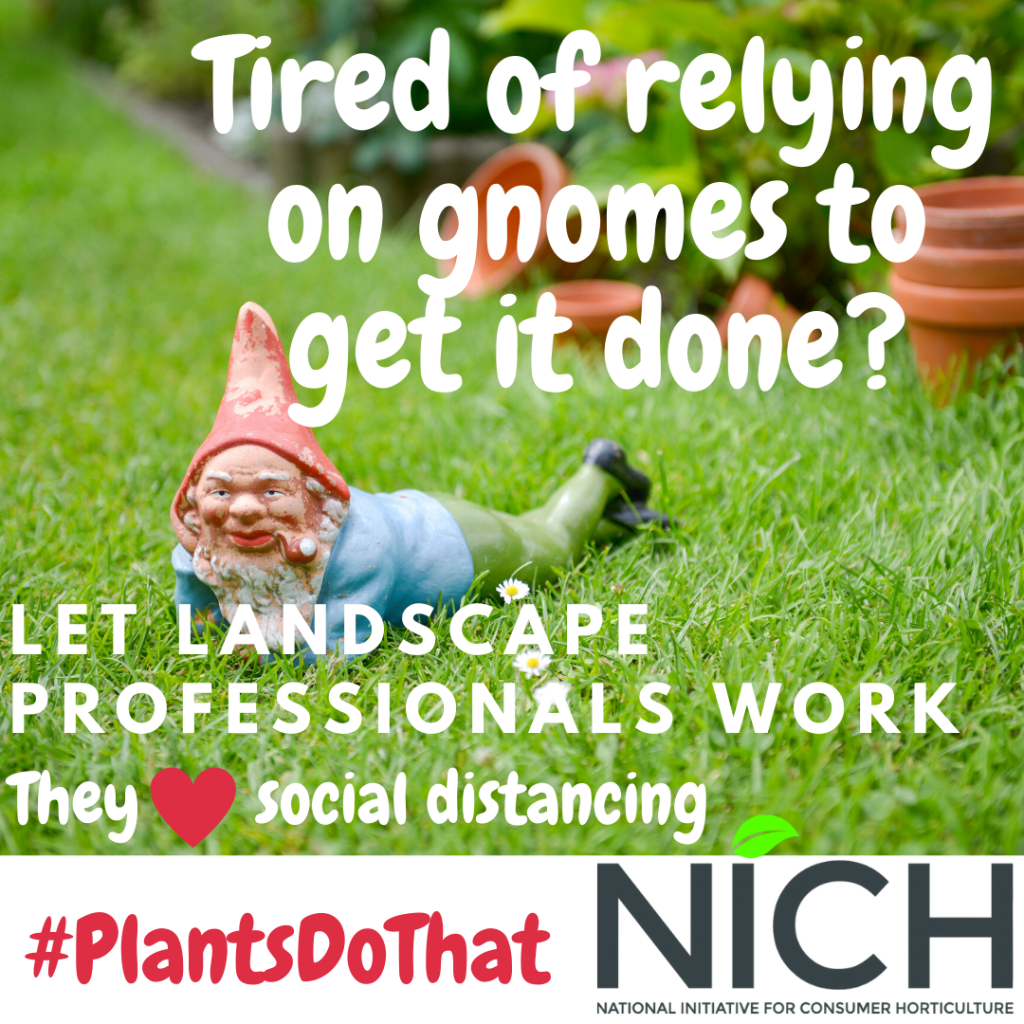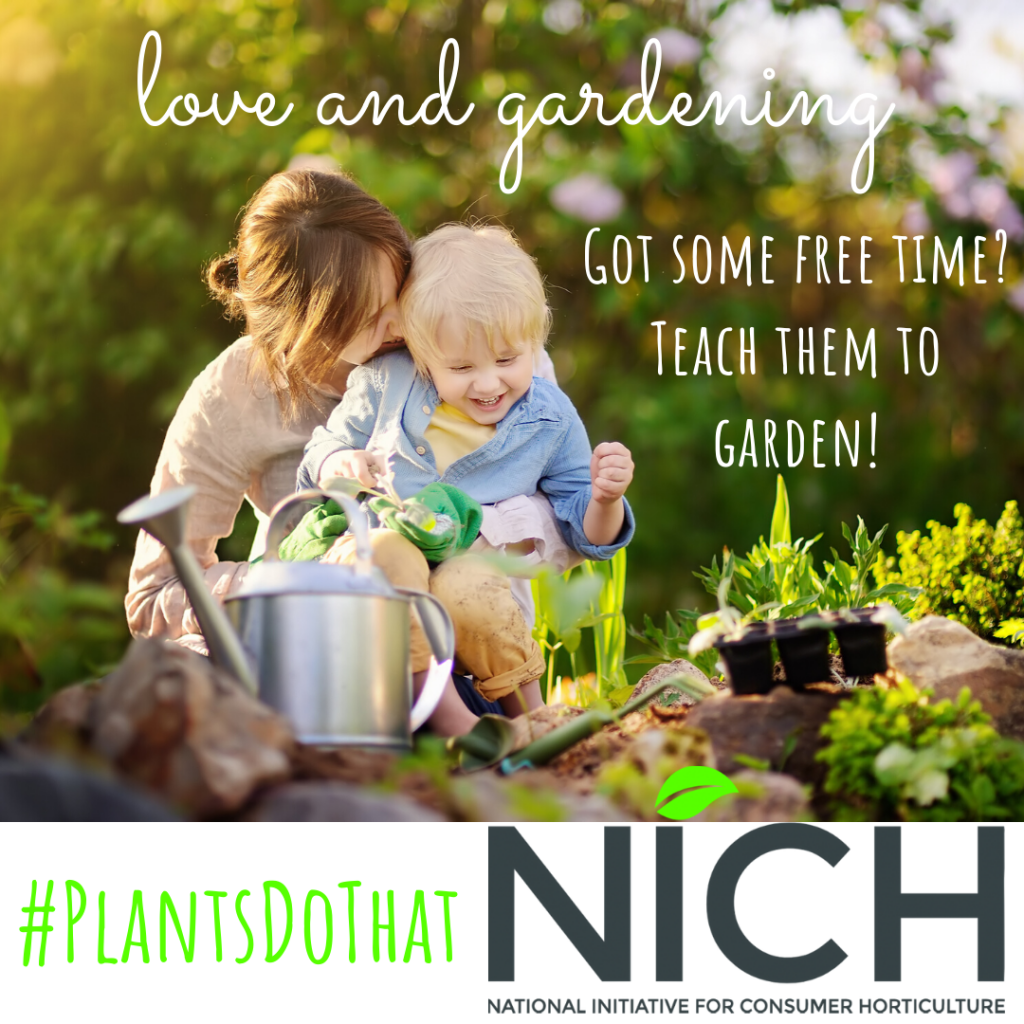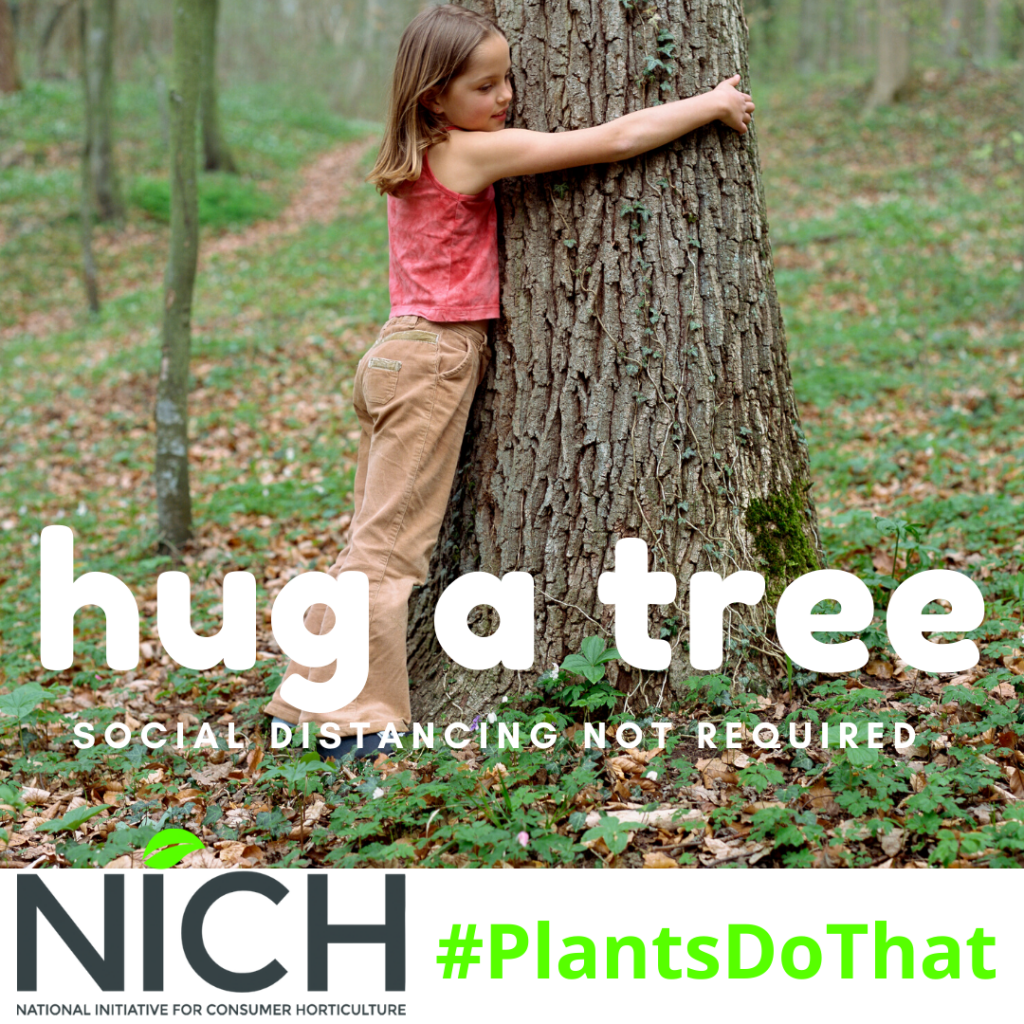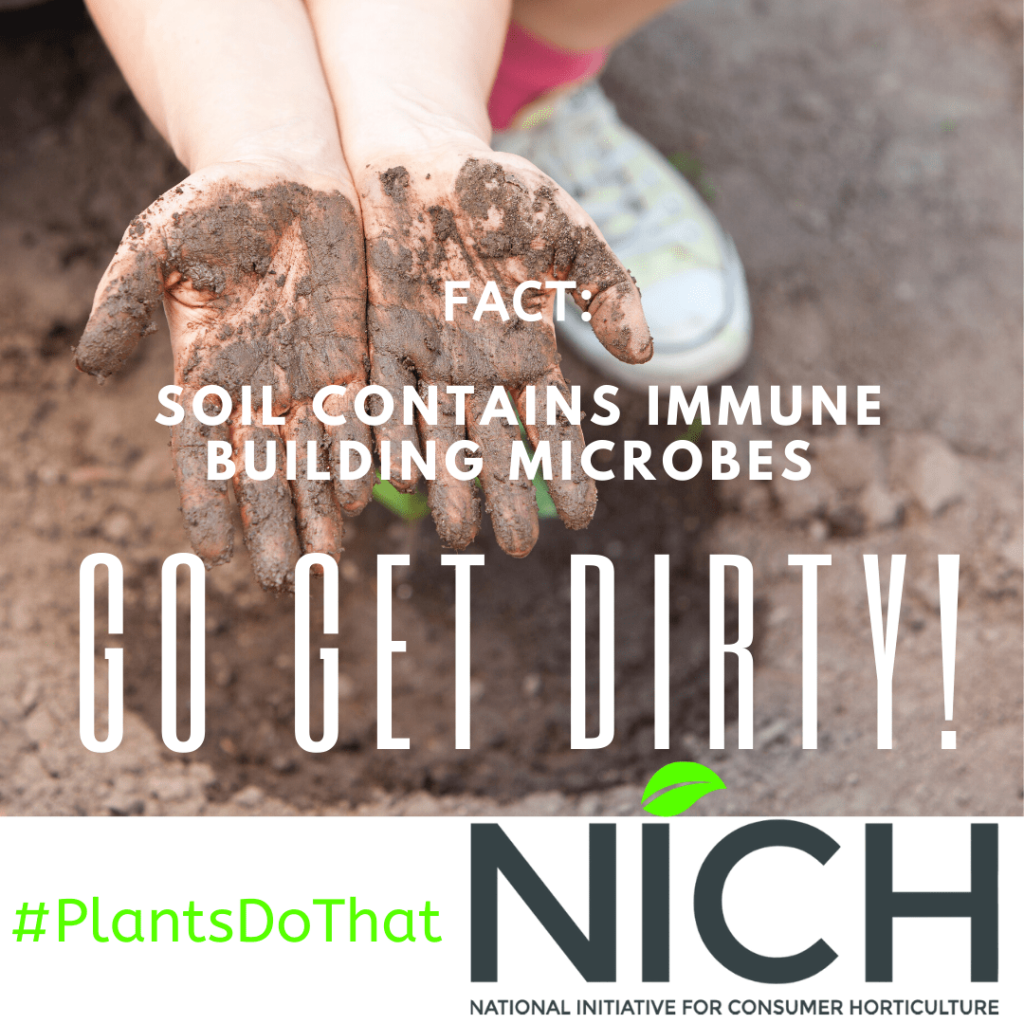| Greetings NICH Supporters, The National Institute of Food and Agriculture has asked for stakeholder input for the Urban, Indoor and Other Emerging Agricultural Production Research, Education, and Extension Initiative. This is a GREAT opportunity to influence USDA NIFA’s prioritization and funding processes. We need to speak up by June 22, 2020. An ad hoc committee of NICH members has crafted the paragraphs below to assist you with comments that support the work of NICH and other like-minded organizations. Please include them in your comments. As supporters of the National Initiative for Consumer Horticulture we urge you to provide greater funding for competitive grants that build strong, local, community-based agricultural systems in diverse cities and neighborhoods across the United States. This includes private, community, school, public gardens and gardening education (provided by educators and nonprofits) which are often considered the purview of consumer horticulture. We urge you to consider generous support for research, extension and education that support business entrepreneurship in community supported agriculture, particularly in underrepresented and underserved areas where these businesses can fill the gaps in food networks. With regards to the first question (which phase has the greatest and most urgent research, extension and education needs in developing urban agriculture) we feel (a) agricultural production (especially as it pertains to the urban environment), (c) transportation and (g) markets have the greatest and most urgent research, extension and education needs. Our highest priority for the most urgent research and extension need is (c) identifying and promoting the horticultural, social and economic factors that contribute to successful urban, indoor, and other emerging agricultural production. We also feel that (g) developing new crop varieties and agricultural products to connect to new markets is a priority. We encourage you to add your comments to these above today. The solicitation for comments is here and the comments should be submitted at: https://beta.regulations.gov/document/NIFA_FRDOC_0001-0145. Click on the blue button and submit your comments. Comments can be addressed to Deputy Secretary Censky. This is a good opportunity to influence the Research, Extension and Education agenda of NIFA. Please send input and pass this on to others who share our values and intentions. Thank you, Chair, National Initiative for Consumer Horticulture |
Resources You Can Use in These Unusual Times
We had just finished creating our April memes that celebrate both Earth Day and Arbor Day when COVID-19 modified our plans (just as it changed yours). Maintaining social distance is pretty easy for a group like NICH. We meet electronically and are scattered across the country.
Many of us are faced with new challenges of suddenly finding ourselves unemployed, working from home, kids out of school, and uncertainty and worry. Many of you are essential workers on the front lines of this pandemic. We understand that these lifestyle changes can be difficult for both you and your customers. We will do our part by providing content that is engaging and involves consumers with plants and nature every day.
This is a good time to inspire new consumers of horticulture. After all, we can enjoy our house plants and garden in the yard. We can even take advantage of horticulture service industries, such as lawn and tree care, and landscape designers, while maintaining a safe social distance.
With that in mind, our Social Media Committee and the Health and Community Committee have created a series of engaging memes to get this message out. Don’t hesitate to use and share these resources. Please tag @consumerhort on Instagram and use the hashtag #PlantsDoThat in all of your posts, so we can track how far they have gone and how many people they reach.
We are also creating a virtual ‘Horticulture Hunt.’ These provide suggestions for consumers, including parents working at home with children, to get everyone outside and immersed in the world of horticulture. There will be easy activities involving plants that can be done in homes, backyards, or on a walk around the neighborhood or park. We will produce one challenge activity per day during April. Look for these on our Facebook and in our Instagram accounts, and please share. The more people we can encourage to enjoy horticulture, the better.
If you haven’t done so yet, follow our pages, like them, repost, and take what you can and use it. Let’s get the word out there on how plants improve our lives.
Facebook : https://www.facebook.com/consumerhort/
Instagram: @consumerhort
Work Smart with Plants
Work sapping your energy? Do you find it hard to focus? Plants have been shown to make workers more creative, productive, and motivated while helping them stay calm, relaxed, and focused. Plants at work boost energy, reduce sick leave, and reduce eye strain. Plants also improve air quality by removing carbon dioxide, particulates, and harmful chemicals. Plants should be a part of every productive and happy workplace

There is a right plant for almost every workspace. Different plants have different needs, and light and water are the two most important factors to consider when selecting and growing indoor plants. Plants that need more light grow best in a window facing south or west. Plants also differ in their water needs; it’s a good practice to water indoor plants weekly.
Plants also prefer some humidity, which can be difficult to provide with central heating and cooling. Increase the humidity by grouping plants together to create a micro-environment of elevated humidity. Finally, don’t forget about the temperature—most indoor plants like it between 60 and 80 degrees (F).
Houseplants are a great way to bring the outdoors in. Plants can make a wonderful addition to your décor no matter the setting and have a positive impact on your health and productivity.
Here is a short list of indoor plants that can thrive at the office: ZZ plant (Zamioculcas zamiifolia), mother-in-law’s tongue, pothos ivy, arrowhead plant, dracaena, calathea, bird’s nest fern, dieffenbachia, schefflera, fiddle-leaf ficus, money tree, parlor palm, spider plants, Chinese evergreen, peace lily, and dragon tree. Succulents and sedums, which are trendy right now, also do well indoors.
The National Initiative for Consumer Horticulture (NICH) highlights research that supports the benefits of plants in our homes, schools, hospitals, workplaces, and places of worship.
NICH is a consortium of industry leaders who are promoting the benefits and value of horticulture. NICH brings together academia, government, industry, and nonprofits to cultivate the growth and development of a healthy world through landscapes, gardens, and plants – indoors and out.
Valentine's Day 2020
Valentine’s Day is upon us, and love is in the air! Plants and flowers make thoughtful gifts with many benefits besides beauty. Use these memes to help get the word out to your customers, friends, and family. These memes are based on research and highlight just some of the benefits indoor plants provide.



When posting on social media, use the hashtag #PlantsDoThat.
“At NICH, we believe everyone should enjoy the many benefits of horticulture. Why pass up an opportunity to give a plant?” says Mary Kay Woodworth, Chair of the NICH Marketing Committee. “A living, growing plant is a great way to say I love you.”
The National Initiative for Consumer Horticulture (NICH) is a consortium of industry leaders who are promoting the benefits and value of horticulture. NICH brings together academia, government, industry, and nonprofits to cultivate the growth and development of a healthy world through landscapes, gardens, and plants – indoors and out.
PlantsDoThat for Pollinators, Fire, Water, Soil, and Cities and Suburbs
A series of infographics developed by the National Initiative for Consumer Horticulture (NICH) highlights the importance of landscape plants in conserving and protecting the environment. PDFs of each infographic are available for download at the bottom of this page.
“These five infographics help spotlight relevant facts from over 30 sources. The infographics point to ways that #PlantsDoThat to enhance pollinator conservation, protect our water resources, defend against wildfires, maintain soil health and generally improve our quality of life,” according to Dr. Gail Langellotto.
NICH data shows that plants benefit the environment in many ways:
- Having plants on the soil surface prevents erosion, soil crusting, compaction and reduces weeds.
- Native trees in residential yards help sustain native bird and wildlife populations in metropolitan areas.
- Well-maintained, healthy lawns help prevent the spread of fire and can be used in creating a defensible space around homes.
- Plants help filter and reduce concentrations of nutrients, heavy metals, pathogens and other pollutants from stormwater runoff.
- Gardens often contain more abundant and diverse bee communities, compared to nearby natural or agricultural areas.
The infographics, developed by the NICH Environmental Committee under Dr. Gail Langellotto’s leadership, use data gathered from research publications, extension publications, government organization outputs, and resource websites. Each infographic was developed by committee members specializing within the topic area and familiar with the research that most impacts consumers.
Please use these infographics to further your business and educational efforts. Use the hashtag #PlantsDoThat when posting them online.
“These are facts that many people may intuitively know but by putting the information in a succinct, visual format that ties the information together, it opens the opportunity for action. These infographics could not be more appropriately timed as a growing concern for our environment has impacted all facets of consumer life,” says Lauren Garcia Chance, NICH Environmental Committee chair.
“I hope to see these infographics in my local resale nursery, used in extension packets, handed out at landscape expos or used by industry members to further their business and outreach efforts,” said Garcia Chance.
The National Initiative for Consumer Horticulture (NICH) is a consortium of industry leaders who are promoting the benefits and value of horticulture. NICH brings together academia, government, industry, and nonprofits to cultivate the growth and development of a healthy world through landscapes, gardens and plants – indoors and out. The Mission of the National Initiative for Consumer Horticulture is to grow a healthy world through the art, science and business of plants, gardens and landscapes.
2020 NICH Meeting Minutes
- 12.1.2020 NICH Meeting Minutes,
- 11.3.2020 NICH Meeting Minutes,
- 10.6.2020 NICH Meeting Minutes,
- 9.1.2020 NICH Meeting Minutes,
- 8.4.2020 NICH Meeting Minutes,
- 7.7.2020 NICH Meeting Minutes,
- 6.2.2020 NICH Meeting Minutes,
- 5.5.2020 NICH Meeting Minutes,
- 4.7.2020 NICH Meeting Minutes,
- 3.3.2020 NICH Meeting Minutes,
- 2.4.2020 NICH Meeting Minutes,
- 1.7.2020 NICH Meeting Minutes,

